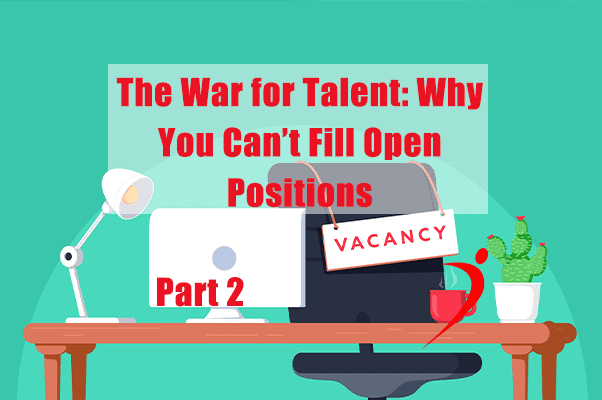
In this eight-part series, we will take a close look at eight different factors that will affect your company’s ability to attract and retain top talent in the marketplace.
Retention and compensation go hand in hand. While today’s professionals place higher value on work/life blend, flexible working hours, and company culture than their predecessors did, cash is still king in terms of attracting the best and brightest and keeping them on your payroll. Other factors do play a role in employee satisfaction, but if you continually offer below-market rates, it won’t matter how flexible you are—you’ll still have trouble filling open positions with top talent.
Why Businesses Offer Below-Market Compensation
Most professionals would agree that a quality employee is worth his or her weight in gold. If you can find someone who has the skills, experience, and education needed for the position, and who also fits your company culture and upholds your values, it’s worth paying that person more to keep him or her on the team. But it’s not always that simple. There are two primary reasons businesses continue to offer below-market compensation rates despite an employee’s worth:
- Budget Concerns—Of course, you can’t just ignore the budget. Budgets are there for a reason. However, budget concerns can also undermine your efforts to find quality talent for a given position. If you have budgeted $60,000 for a management position and all your competitors are offering $75,000, you’re going to have trouble filling that position. Even when you do fill it, chances are you’ll have to hire a less talented or less experienced person, which may result in higher turnover and lower productivity. Always consider whether the money you save now is truly worth it in the long term.
- Internal Equity—Internal equity is the idea that employees at the same level within the business ought to receive similar pay. This only becomes a problem when current employees have been receiving below-market compensation and a business is unwilling to bring a new employee on at current market rates. If you pay all of your employees the current market rate for their positions, you won’t have internal equity problems. Keep in mind that compensation should be determined by the position and the skill required to perform the job, not by job title.
How to Determine Compensation Rates
When hiring is driven by budget or internal equity alone, below-market compensation is often the result. Rather than hiring to fit the position, businesses may end up hiring to fit the budget, which often results in filling open positions with under-performers (or being unable to fill the position at all). How, then, can you find the right person for the job without scrapping your budget altogether?
- Consider what skills you need. What results do you want your new employee to achieve? What skills and experience will he or she need to achieve those goals? Are there any skills you could train for (which may allow you to hire a person with less experience at a lower pay rate)
- Determine current market rates. Take a look at the going rate for an employee with the skillset you need. At Hire Velocity, we use predictive analytics to determine the average compensation for a particular position in a given region. These reports help clients understand where their current compensation rates fall on the spectrum so they can see how they measure up against competitors. You can also compare compensation rates on Indeed.com, but bear in mind that these numbers are self-reported and may not be accurate in the current market.
- Commit to paying quality employees what they are worth. When you hire to fit the requirements of the position rather than to fit the budget, you will be more likely to attract and retain the top talent you want. If you can’t pay the current market rate, be prepared to hire someone who may not have all the qualifications or experience you are looking for.
Top talent is in high demand. In order to win the war for talent, you have to be willing and able to adjust your budget in order to accommodate a fair market compensation rate. Underpaying usually results in under-performance. On the flip side, however, great people will always be worth what you pay them.

